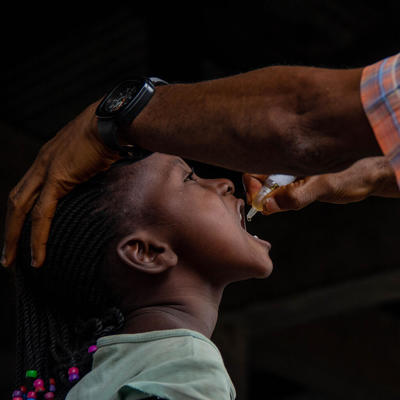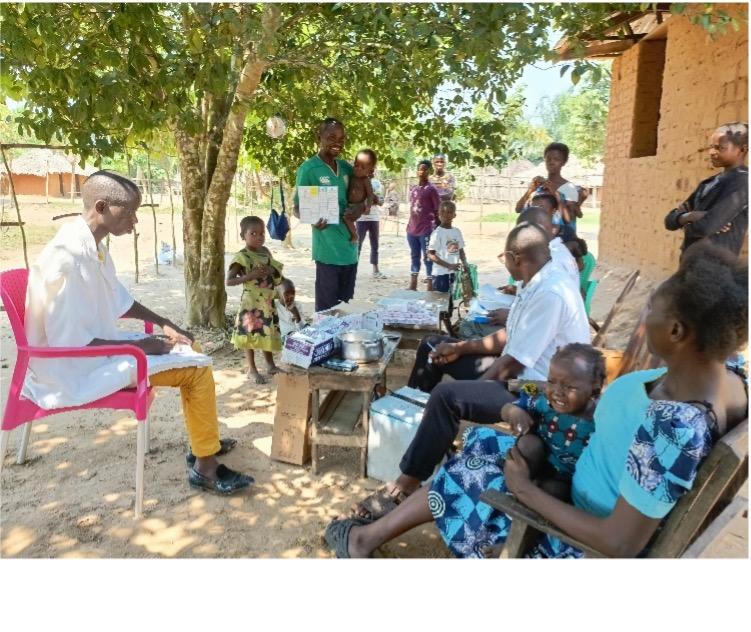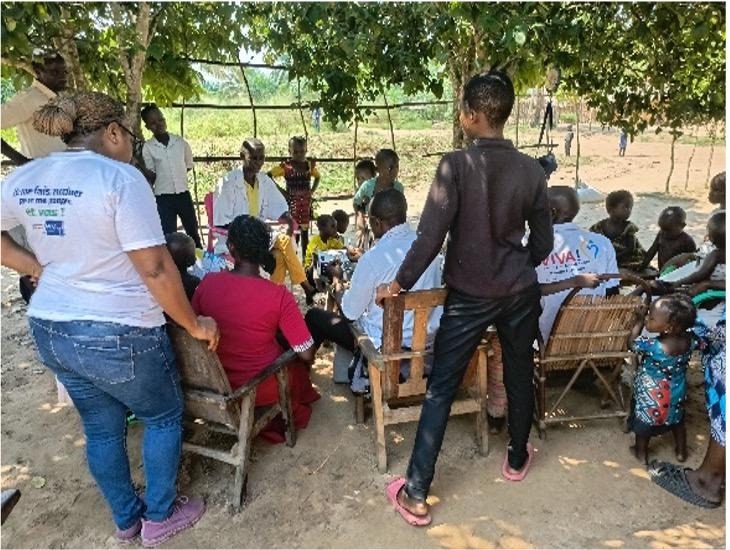
Discover the inspiring story of a father in Shinga-lokenye, Sankuru Province, who challenged gender norms by taking his child for vaccination. Learn how community involvement is transforming health campaigns in the DRC.
In the village of Shinga-lokenye, deep within Sankuru Province, a remarkable event unfolded during what was expected to be a routine vaccination session. As the local social mobilizer moved through the streets with a megaphone, calling parents to bring their children for life-saving vaccines, health workers anticipated the familiar scene: mothers and caretakers lining up with their young children. However, on this particular day, something extraordinary happened—a father, proudly holding his 4-month-old son, stepped forward to ensure his child was vaccinated.
Living 7 kilometers from the Central Health Office of the Benadibele Health Zone, this father had made a bold decision. Unable to wait for his wife to take their son to the session, he brought the child himself, defying traditional norms in a community where childcare—especially responsibilities like vaccination—is often seen as a woman’s duty. His action challenged deep-rooted gender roles and set an inspiring example.

A Rare but Powerful Moment
The health workers were surprised and moved by the sight of a man standing among the women, determined to take a stand for his son’s health. Seizing the significance of the moment, they engaged with him, explaining the full vaccination schedule and the critical importance of staying on track. Vaccines, they emphasized, protect children from deadly diseases, and by ensuring his son was vaccinated, he was safeguarding his child’s future.

This was more than just a vaccination. The health workers recognized in this father a potential agent of change. They encouraged him to become a “relay” of information within his community, mobilizing not only mothers but other fathers as well, to ensure that no child in the village remained unvaccinated. His willingness to break with tradition offered a powerful opportunity to reduce the number of zero-dose children—those who have never received a single vaccine—in the region.
A Father’s Pride and the Impact of Community Mobilization
After his son received the vaccine, the father proudly held up the vaccination card, a tangible symbol of his commitment to his child’s well-being. His pride was clear—not only in protecting his son’s health but also in standing as the sole man in a space traditionally reserved for women. This simple yet powerful act of care challenged the long-standing perception that vaccination is solely a mother’s responsibility, highlighting a growing recognition that healthcare is a shared duty.
In the Democratic Republic of the Congo, UNICEF and its partners are working to encourage this shift in attitudes. By involving men in conversations around vaccination, they are fostering a community-wide commitment to protecting children from preventable diseases. The actions of this father are a reminder that when everyone is involved—regardless of gender—the impact of vaccination campaigns can be greatly amplified.
A Collective Effort for a Healthier Future
The outreach session in Shinga-lokenye, organized by the Expanded Programme on Immunization (EPI) team under the supervision of UNICEF’s Social and Behavior Change consultant, underscored the vital role of community participation in vaccination campaigns. Through the efforts of social mobilizers, health workers, and dedicated parents like this father, vaccination initiatives are breaking through traditional barriers and gaining new momentum.
As UNICEF continues its work across communities in the Democratic Republic of the Congo, stories like this father’s serve as proof that when communities come together—men and women alike—they can create a healthier future for their children. The father’s initiative in Shinga-lokenye is just one example of how community members can take ownership of their roles in public health, ensuring that every child, no matter how remote their village, receives the protection they need through vaccination.


